Round Square at SPCC
St. Paul's Co-educational College, as the first Round Square school in Hong Kong since 2010, is committed to fostering students' all-round development and equipping them with the attributes stated in the SPCC Student Profile, which are closely aligned with the Round Square IDEALS. Read More

The SPCC Round Square Student Committee (RSSC) was set up as a core team to promote the six IDEALS in SPCC. Through collaboration with other student bodies, RSSC aims to engage students in various IDEALS activities and experiences. In addition, the Committee aims to represent SPCC in exchanging ideas and views with other Round Square schools, and in encouraging students to actively participate in a broad spectrum of activities, including international exchanges, outdoor education programmes, and community service projects.
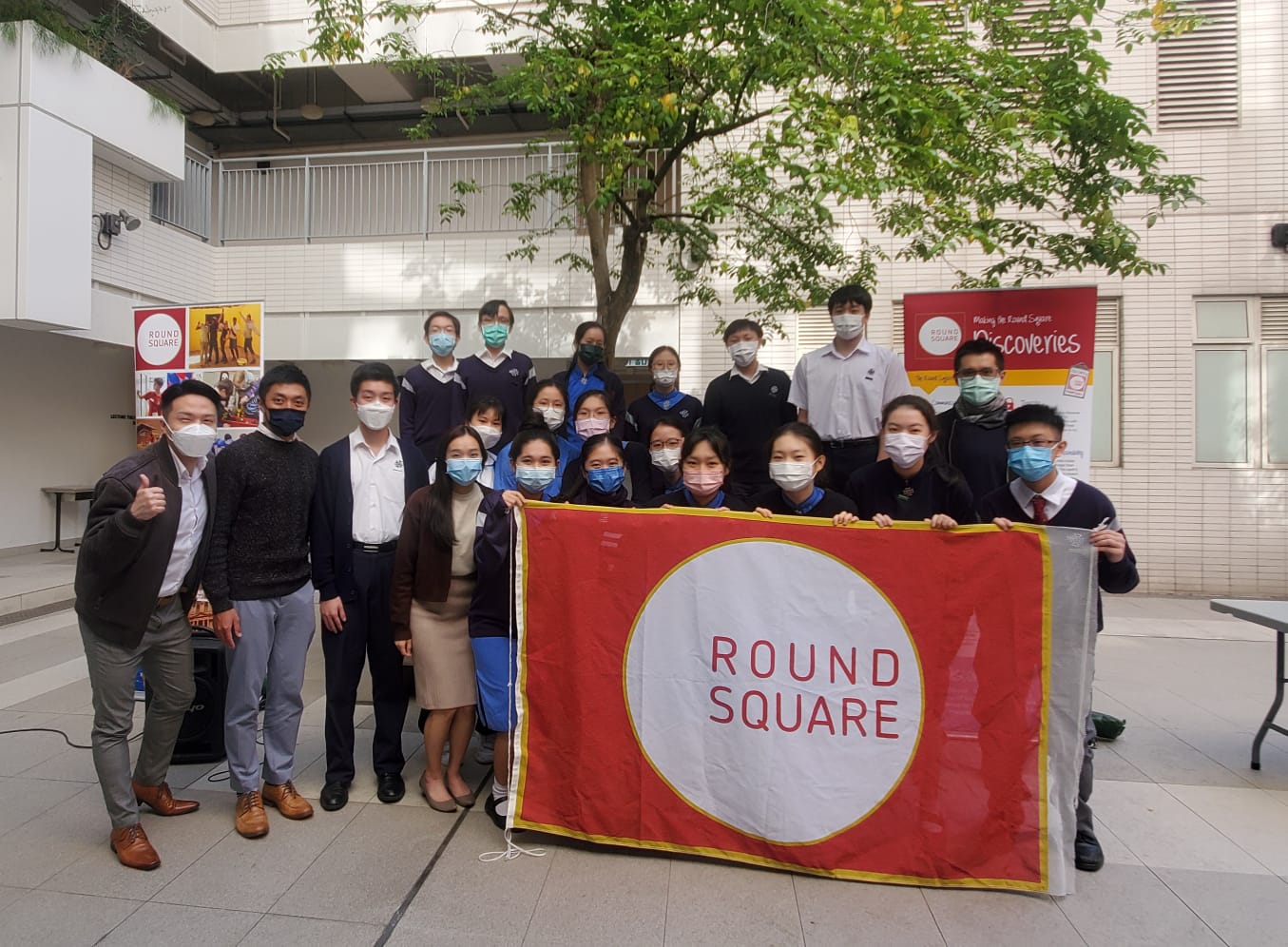
Teachers-in-charge and members of the Round Square Student Committee
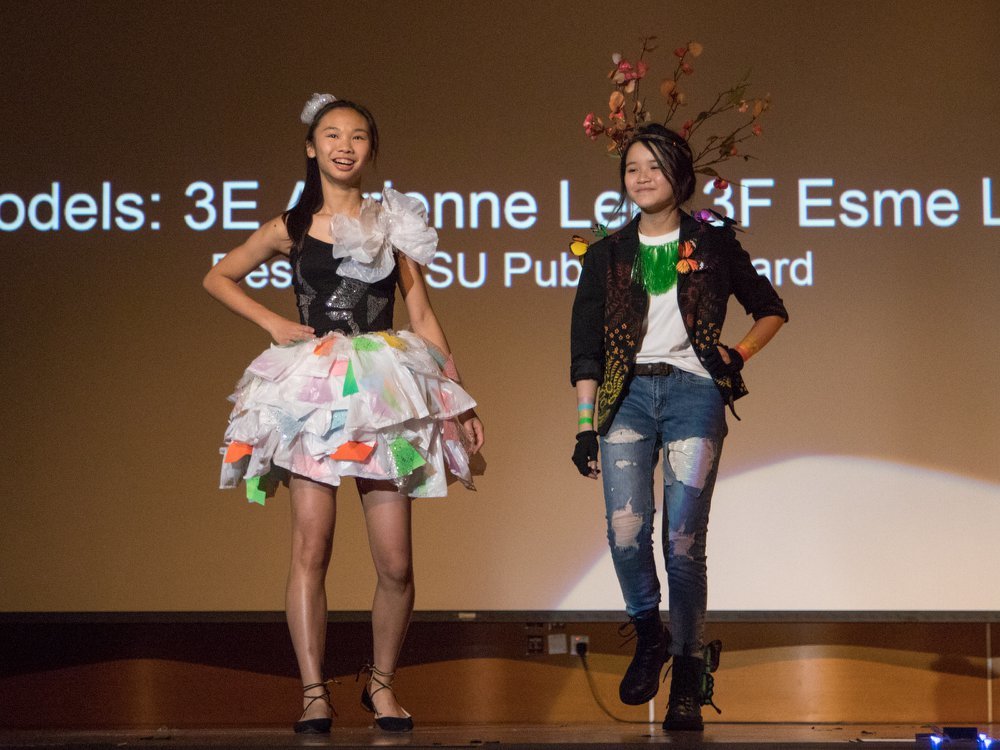
Round Square Green Fashion Show
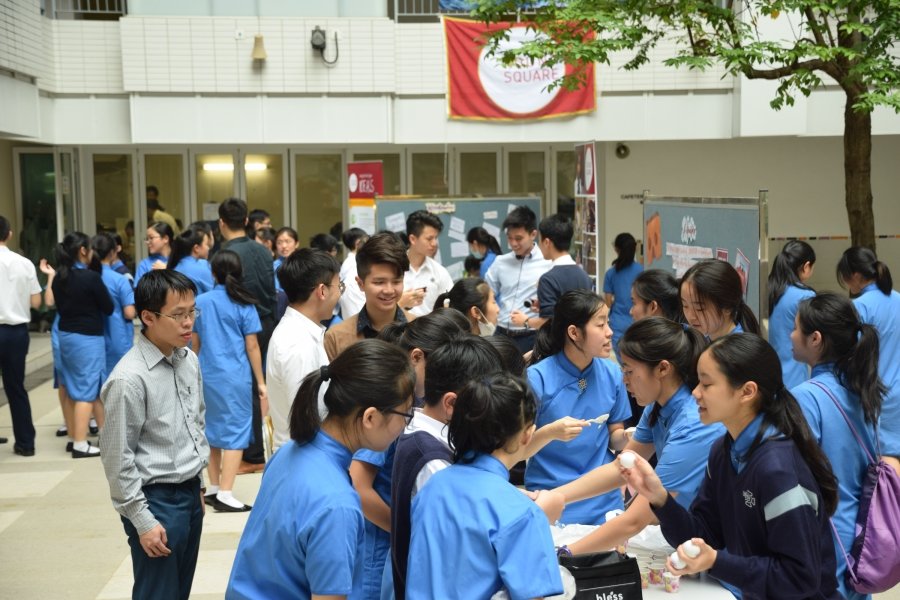
Round Square Day
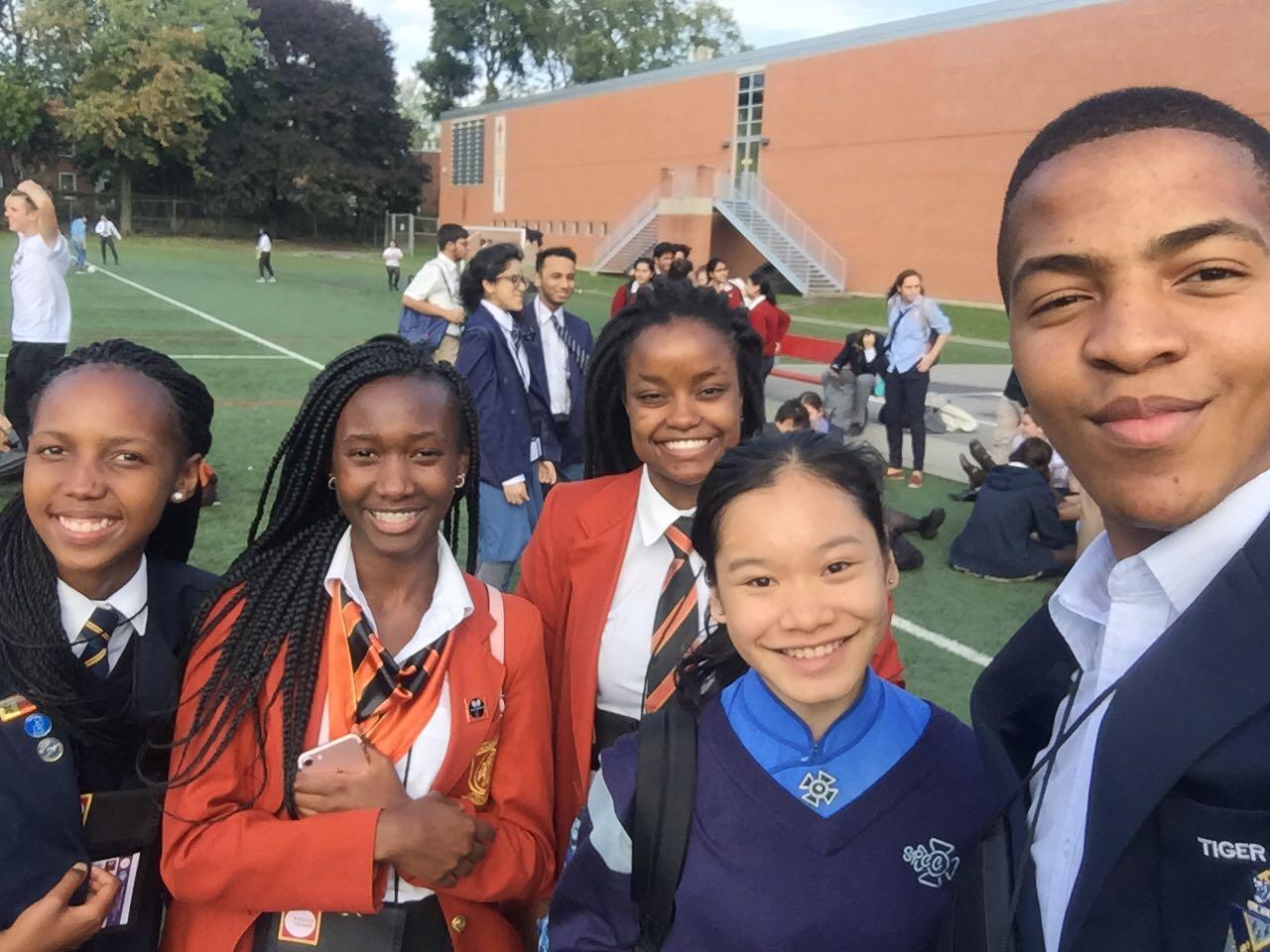
Round Square International Conference
Our goal is to prepare young people for life beyond the classroom by instilling in them a strong commitment to personal growth and responsibility and nurturing them into confident individuals, lifelong learners and responsible global citizens.
Internationalism
The motivation to seek out, discover and embrace different cultures to promote understanding and respect. Round Square will continue to provide students with opportunities to participate in Model United Nations, international and regional conferences, as well as potential exchange programmes in the second term if the pandemic situation alleviates.
Model United Nations experience ~ Cheung Ho Yan Korliss
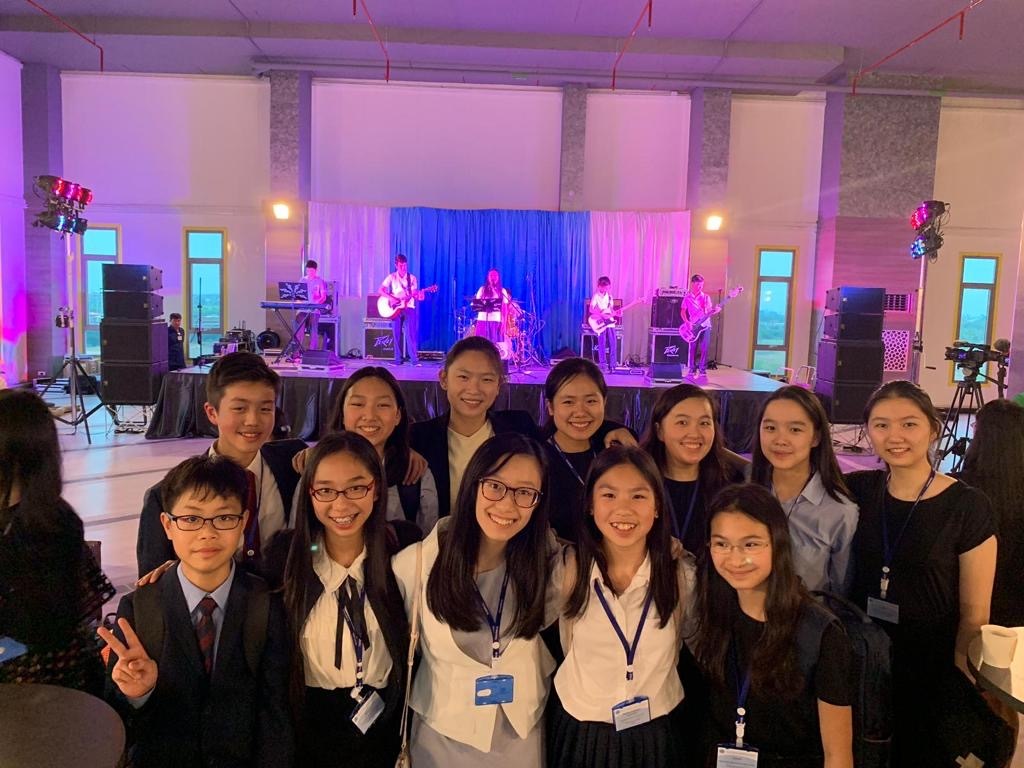
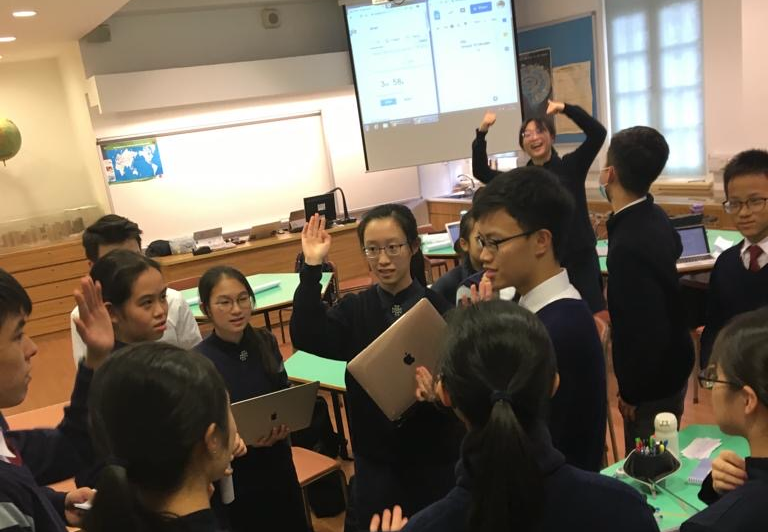
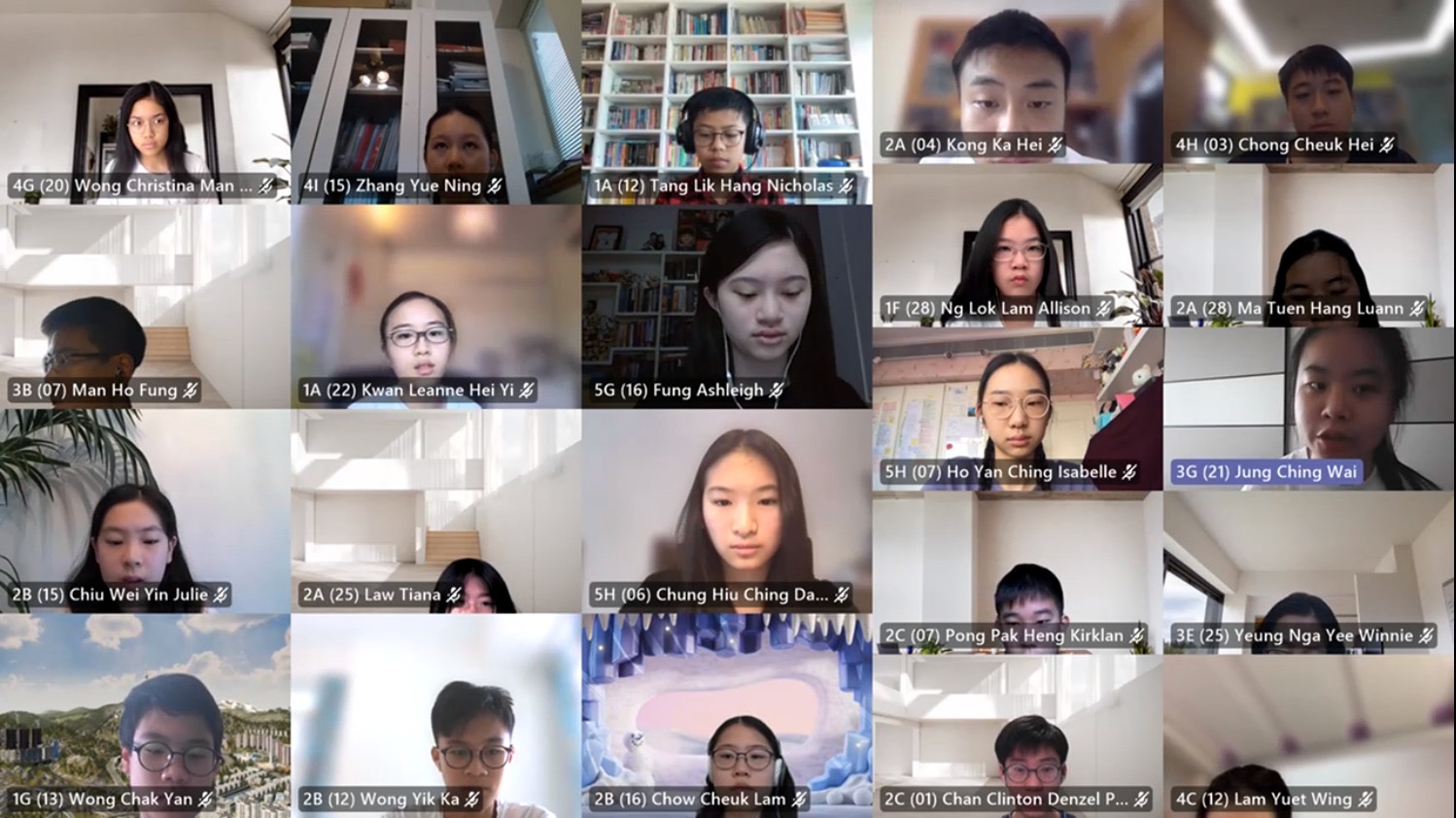
Model United Nations (MUN) is an academic simulation of a United Nations conference, where delegates represent different countries to discuss solutions to a myriad of real-world problems, ranging from illicit trafficking of cultural property to the demilitarization of space. The purpose of an MUN conference is to enhance students’ knowledge of geopolitics and diplomacy skills.
Through attending MUN conferences, I had the opportunity to explore contentious international issues beyond the scope of our academic curriculum. I once represented Germany in the Council of the European Union on the topic of mitigating domestic terrorism within the European Union (EU). Prior to the conference, I barely had any knowledge of the subject and Germany’s status quo. Through extensive research, I learnt about the different types, the causes and the rising threats to domestic terrorism in the EU. As I vigorously debated and negotiated with other delegates to build consensus, I had to take into account the political stance and constraints of each country as well as the Council. It was an immensely challenging experience but it was through communication, collaboration and mutual understanding that I managed to foster my critical thinking, teamwork and leadership skills.
I feel very fortunate and privileged to be part of the MUN community. As I approach the final year of my secondary school MUN career, I hope my work in the MUN Club can help instill a spirit of internationalism in SPCC, inspiring schoolmates to be more globally aware and to contribute to the world as leaders for tomorrow.
Democracy
A sense of equality, fairness and justice. As a Round Square School, our school values freedom of speech and utilizes various channels of communication, such as the election of the Student Union, Class Representative Committee forums and the SU opinion programmes.
The work of the Student Union and Class Representative Committee ~ Nathan Ng
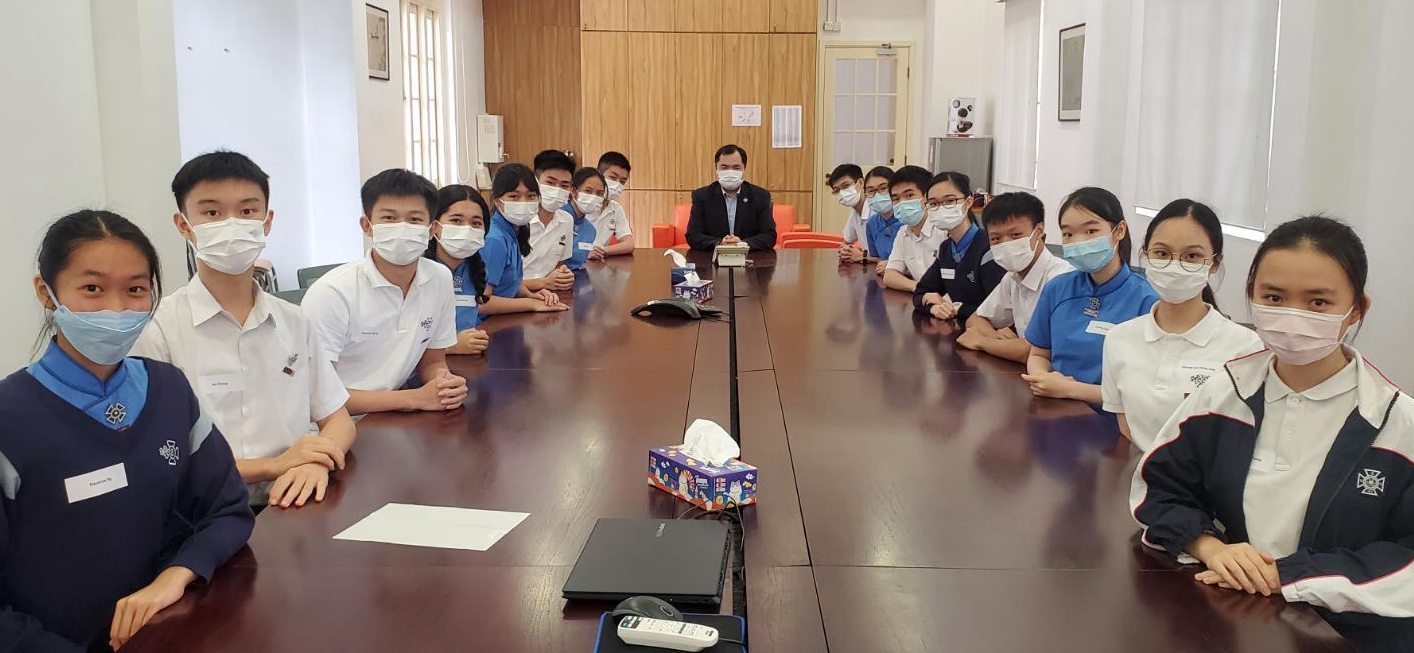
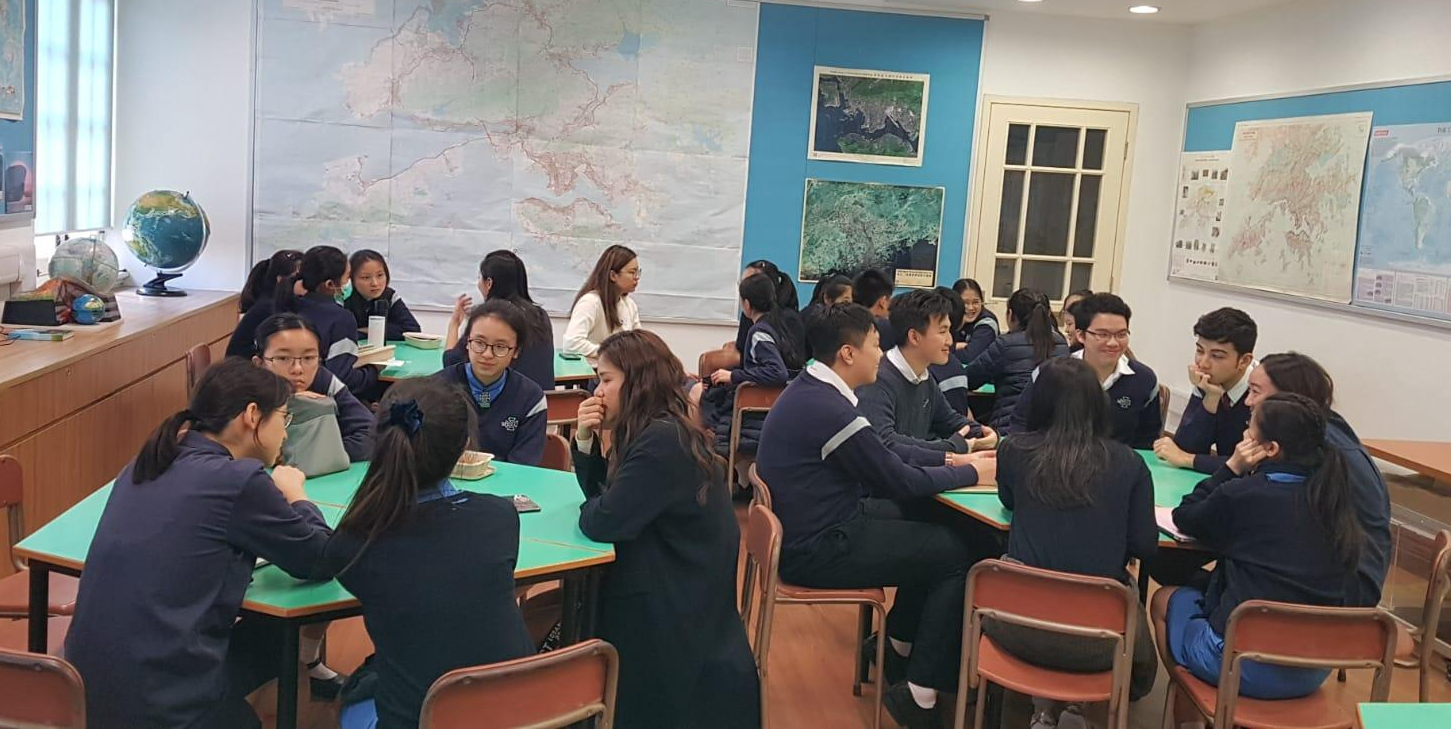
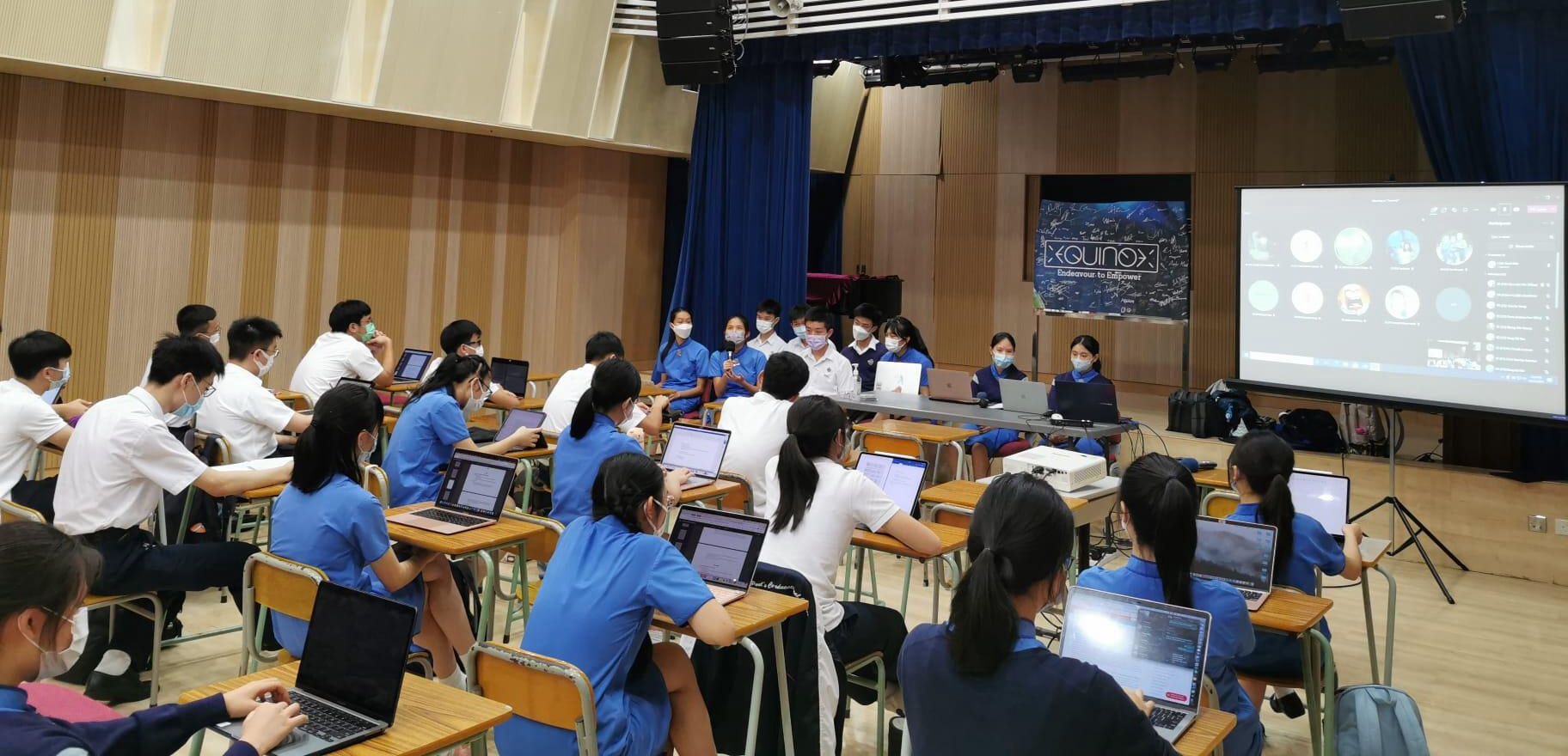
“Democracy is the government of the people, by the people, and for the people.” As miniature societies, schools have the responsibility to uphold the value of democracy, which is also one of the core Round Square IDEALS. The Student Union (SU) and the Class Representative Committee are prime examples of democracy in our school.
Each year, a student union cabinet will be chosen to organise and hold various events for the student community throughout the school year. Our student union is a fully elected student body, which means that all students have the right to vote and make their voices heard. Moreover, apart from catering to the well-being of schoolmates, the SU works hand-in-hand with the Class Representative Committee. Class representatives collect opinions from classmates and relay them to the Student Union and the School. This creates an opportunity for the SU to collect mass information that may help improve current policies. Forums and opinion collection events are held from time to time such that the SU receives constant feedback and ideas from students to finetune their future events. Last but not least, an opinion programme is held annually. Through the programme, the SU can gain insight into the well-being of students, including their school lives and personal lives. The findings will be utilised by SU cabinets in the future to establish their main themes and initiatives such that they are better tailored to meet students’ needs.
Environmentalism
The appreciation for the beauty and fragility of nature, in turn inspiring action in tackling environmental issues. From the Green School Campaign to the annual Green Fashion Show, our school aims to foster the spirit of environmentalism among our students.
Environmental Protection Club – A path to greener world ~ Poon Kristen Bernice
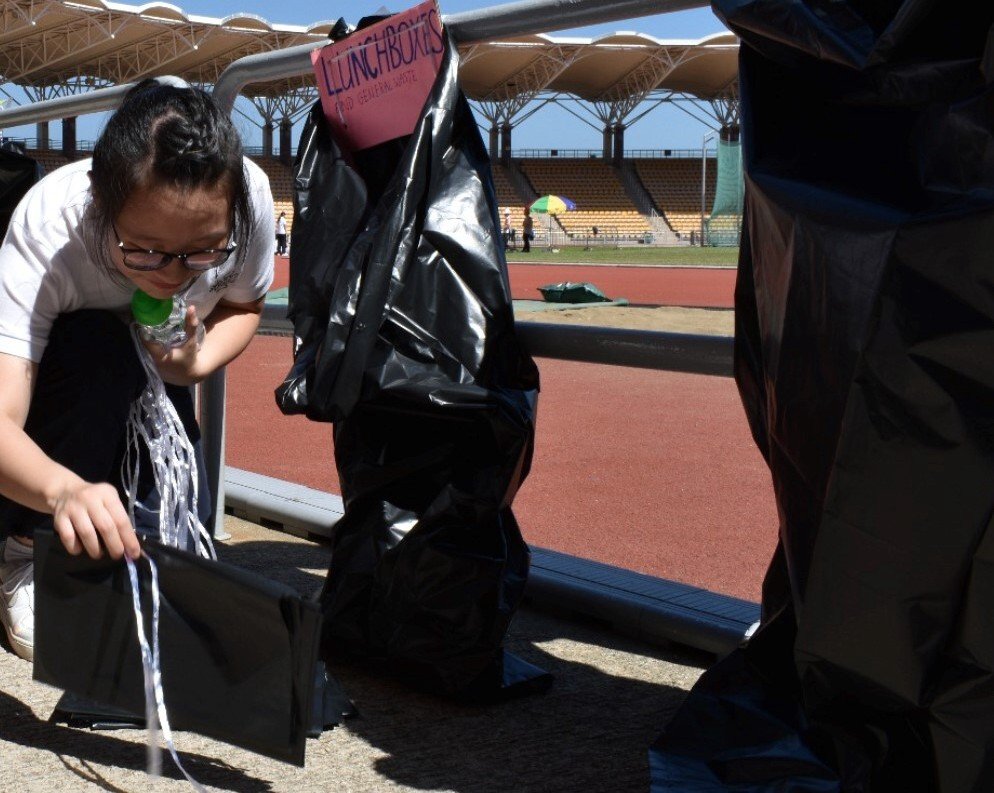
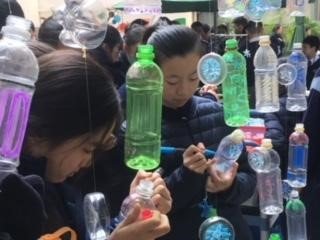
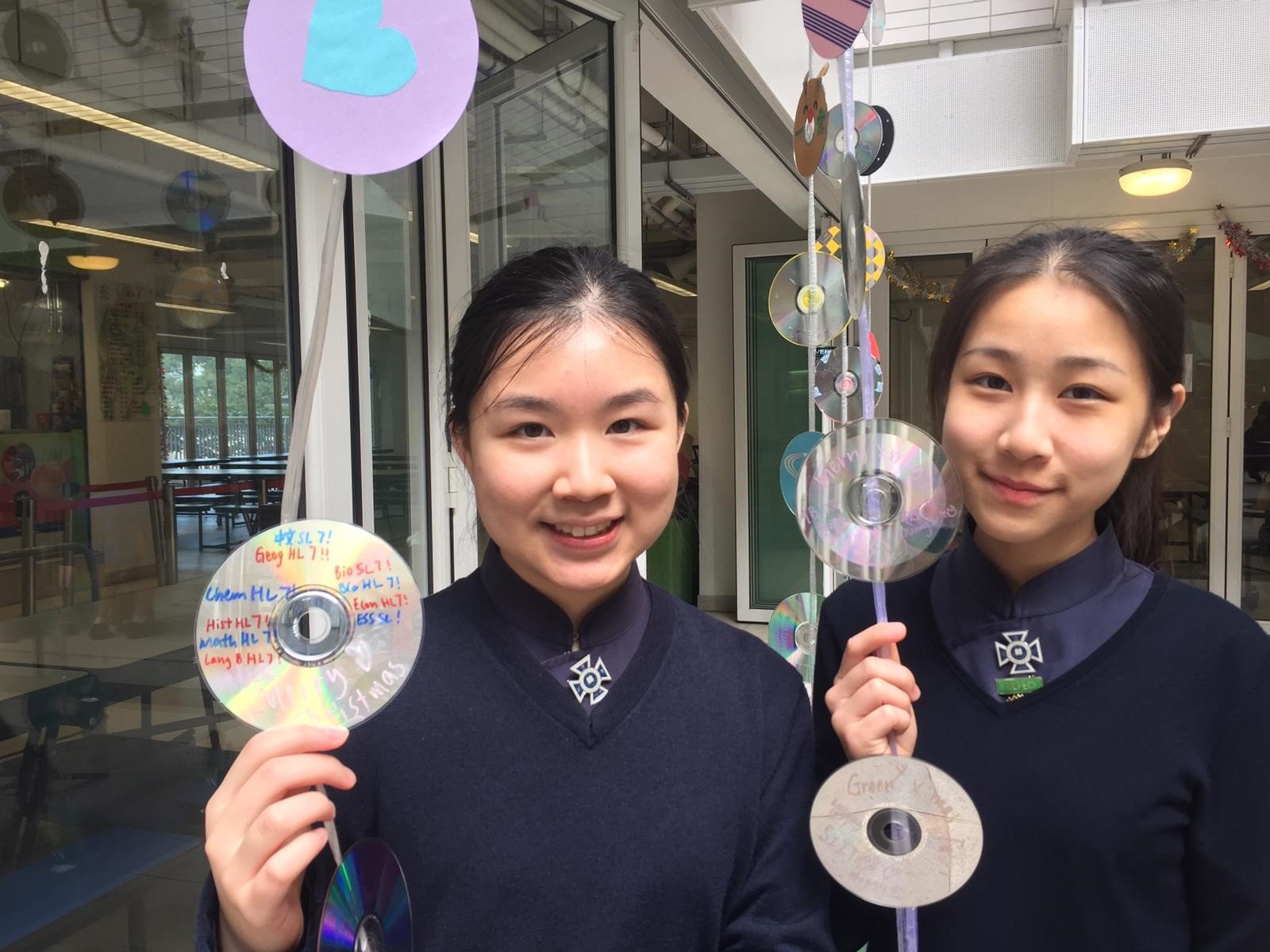
Landfills are overwhelmed; animals are endangered. The environment has given us countless warning signs and reminded us about the need to protect our Earth by achieving sustainability. The Environmental Protection Club (EPC), the main student club responsible for promoting a green school campus, stands firm on upholding environmental responsibility. The EPC’s mission is to raise awareness of the importance of protecting the environment and to foster a more environmentally friendly lifestyle among students.
The EPC actively promotes environmentalism in annual school events. During last year’s Sports Day, recycling stations were set up to collect plastic bottles and aluminum cans, promoting the practice of recycling to students. At the Green Christmas Fair, the EPC puts the concept of “reuse” into practice by teaching students the various ways of creating Christmas ornaments with recyclable materials such as toilet paper rolls and pieces of draft paper.
The EPC also works to create more opportunities for the students to engage in environmental protection. For example, the EPC encourages students to participate in the Clean Air Conference, which is a student forum focusing on solving air pollution problems in Hong Kong. By collaborating with external organizations like the Clean Air Network, we hope to give students more chances to delve deeper into environmental wellness.
Adventure
Behind the adventure-based learning programmes, from Student Activities Week (SAW) to even expeditions in the Rites of Passage (ROP) that our school offers, is the “adventure” ideal. The crux of these activities is to encourage all of us to stop staring at those mountains, but start climbing them. Only those who take risks may find out how far they can go.
Summer Experiential Learning Programme – Stand-Up Paddling x Mangrove Exploration ~ Leung Ya Lei Janelle
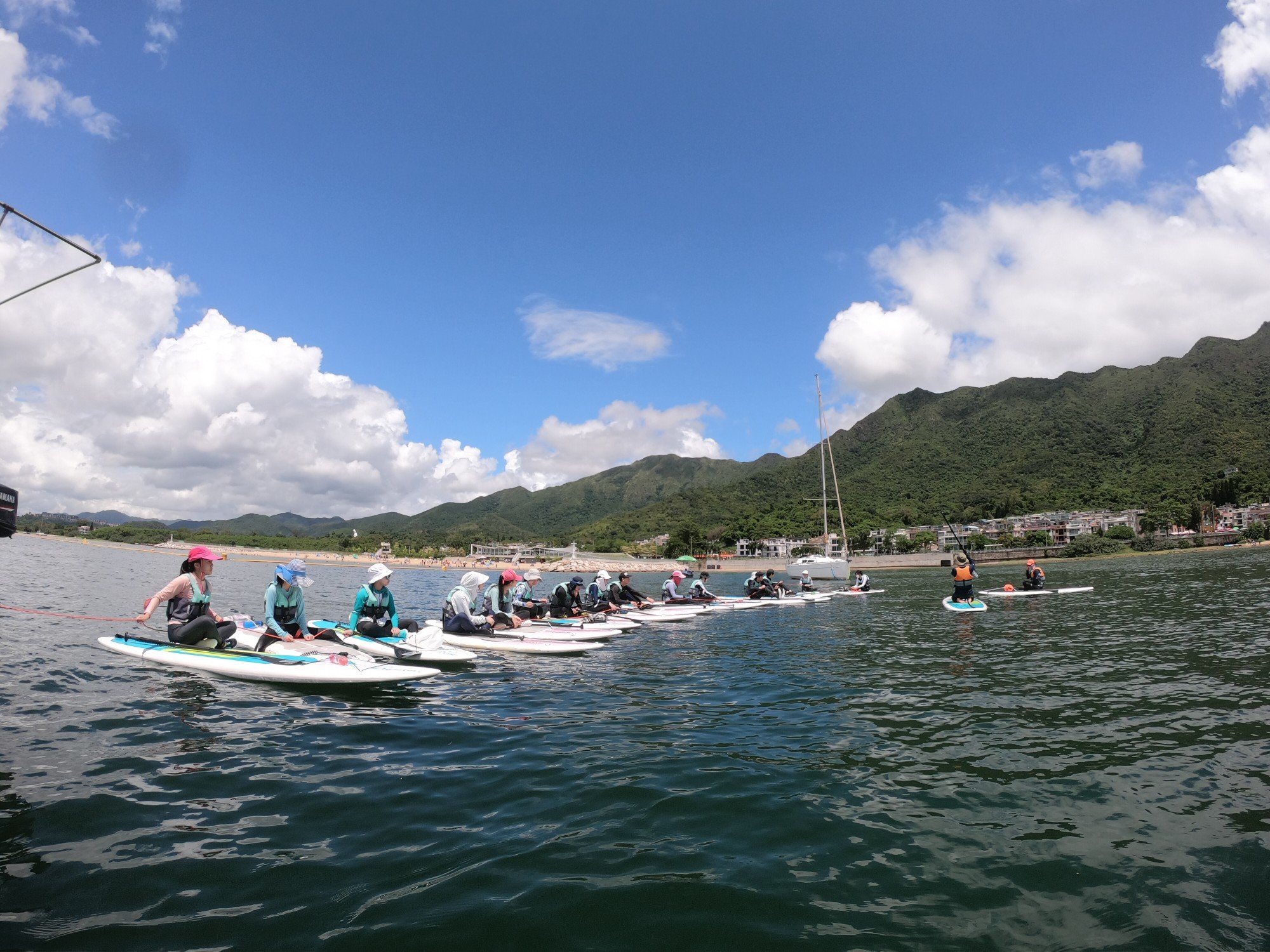
I struggled against the waves, trying to keep myself upright despite their several attempts to toss me overboard. Remembering the instructor’s advice, I slowly wiggled my legs and started to steady myself on the paddle board. Once I regained my balance, I tried coordinating my arms with my legs and pushed the paddle into the waters with all my force and… I fell. I fell into the waters with a big splash, coughing up a mouthful of brackish seawater.
Seeing the others paddle away, farther and farther away from me, I was tempted to give up, to follow the current back to the shore. But I didn’t. Stand-up paddling wouldn’t be fun without challenges. The determination to get back to the team pulled me back up on the paddle, and with newly-found strength, I paddled faster and faster, until I rejoined the group to the open sea, overcoming the recurrent waves.
As the only F6 student in the group, the stand-up paddling programme marked my first and last time participating in the school’s experiential learning, allowing me to interact with the lower forms. Their unfaltering boost of energy has certainly brought positivity to the group and there is no doubt that such experience has been very memorable and exciting.
Hong Kong Award for Young People – Bronze Expedition ~ Cheung Ho Yan & Cheung Ho Ki
Shivering at the chilling mountain gust, quivering at the daunting height - with a touch of rain sprinkling all morning, I huddled underneath my raincoat, gazed into the gloomy mist and couldn’t help but wonder, why am I even here?
As part of the year-long HKAYP Programme, we participated in multiple expeditions and training sessions delivered by Mr Osbert Wan, our school instructor. From learning to use an HM20C map to how to bandage lacerations, we equipped ourselves with the necessary survival skills for outdoor camping. During outdoor expeditions, we were divided into different teams and tasked to organize our own routes to be completed within a designated time.
An expedition was an epitome of life. As a team, we weaved through crossroads, got lost, struggled with decisions. We leaned together, headpieces filled with straw; groping on, avoiding speech. But as we passed through each checkpoint, we trenched on, we persevered; it was the euphoria of arriving at the destination that kept us on.
The great British explorer George Mallory, who died on Mount Everest, was once asked why he wanted to climb it. He said, “because it’s there”. As we sludged our wet, lethargic limbs, bent double, down the hill, I looked back at the mountain top:
I took the one less traveled by, and that has made all the difference.
Summer Experiential Learning Programme – Camp Four Indoor Bouldering ~ Man Ho Fung
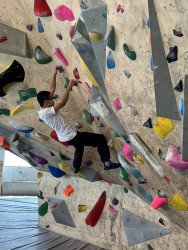
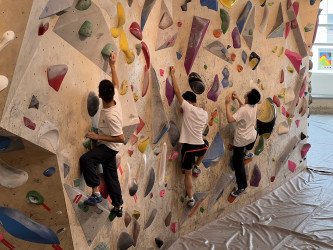
Buckling up my bouldering shoes, I was ready to go up the walls, or I thought. After the briefing session, I eagerly ran up a warm-up route, thinking it would be a no-sweat. However, as I was moving up gradually, pounds and pounds of pressure were suddenly added to my arms. After climbing some of the easiest routes, the soreness of my arm was already more terrible than expected. The old wounds of blisters from bouldering had emerged from my palms again as if they were just there to say, “Just rest. You aren’t ready for this.”
But I refused. I didn’t apply for this course just to get stopped by a few old wounds. I knew that with passion and determination, anything could be done. After a water break, I immediately ran back up to the walls. There was a route that I couldn’t figure out how to climb. The ways I could think of were all unfit for the route placement. It was not until I changed a different starting angle and direction by facing the open area instead of the wall that I finally reached the finishing rock hold. The satisfaction was immeasurable.
After the 2-hour-long session, I was exhausted, bearing limbs that didn’t feel like mine. Yet, it was worth it. Prompting us to think creatively about how to overcome obstacles and to reach our limits with persistence, this programme was undoubtedly fruitful and rewarding.
Leadership
Strategic thinking. Self-confidence. Integrity and responsibility. These qualities all factor into shaping the spirit of leadership that Round Square seeks to instill within students. Round Square empowers students to not just actively take up leadership roles within school, but also to broaden their visions by participating in different in-house leadership programmes, external leadership experiences and international conferences.
A lesson for leadership ~ Ho Cheryl Cheuk Yan
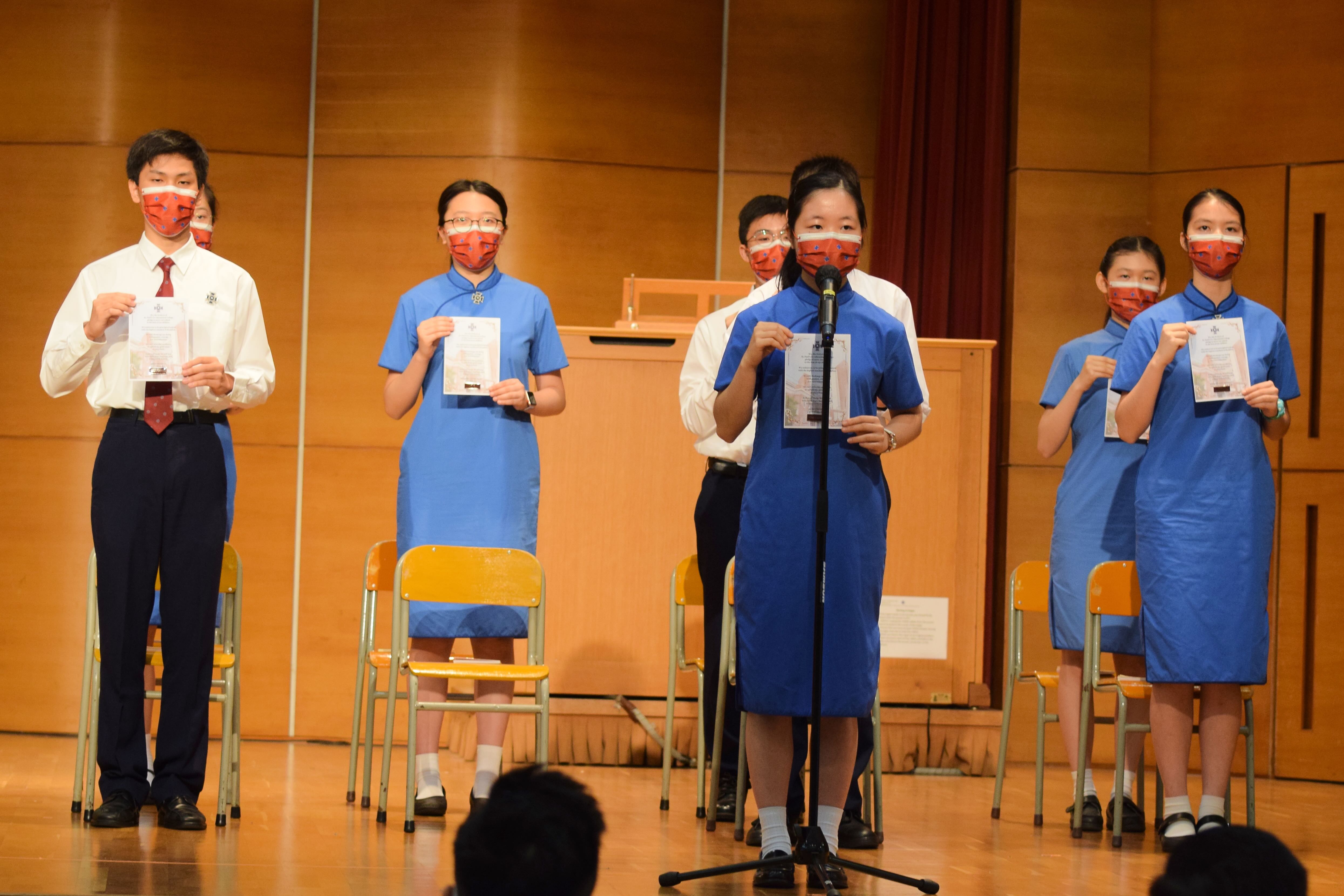
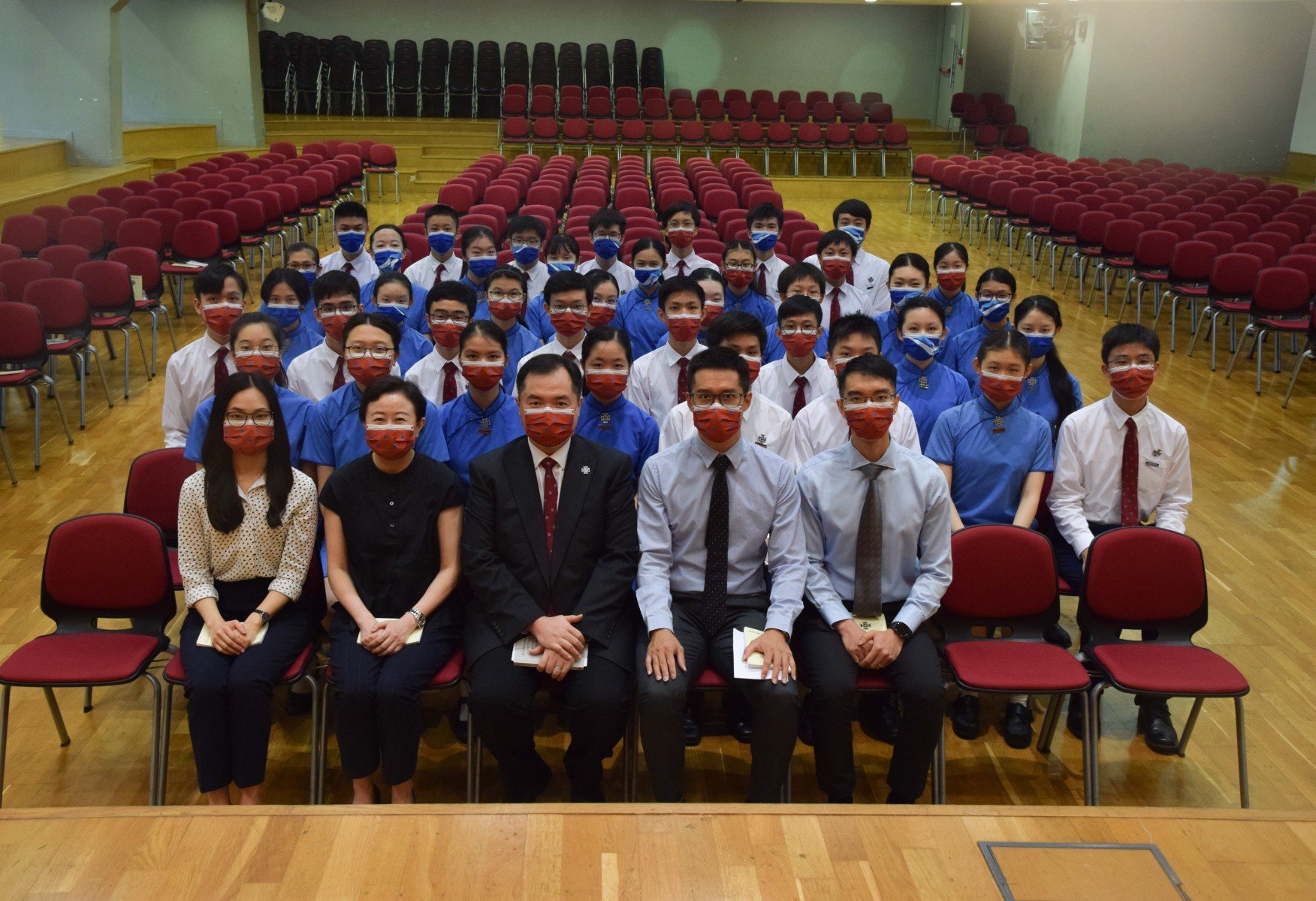
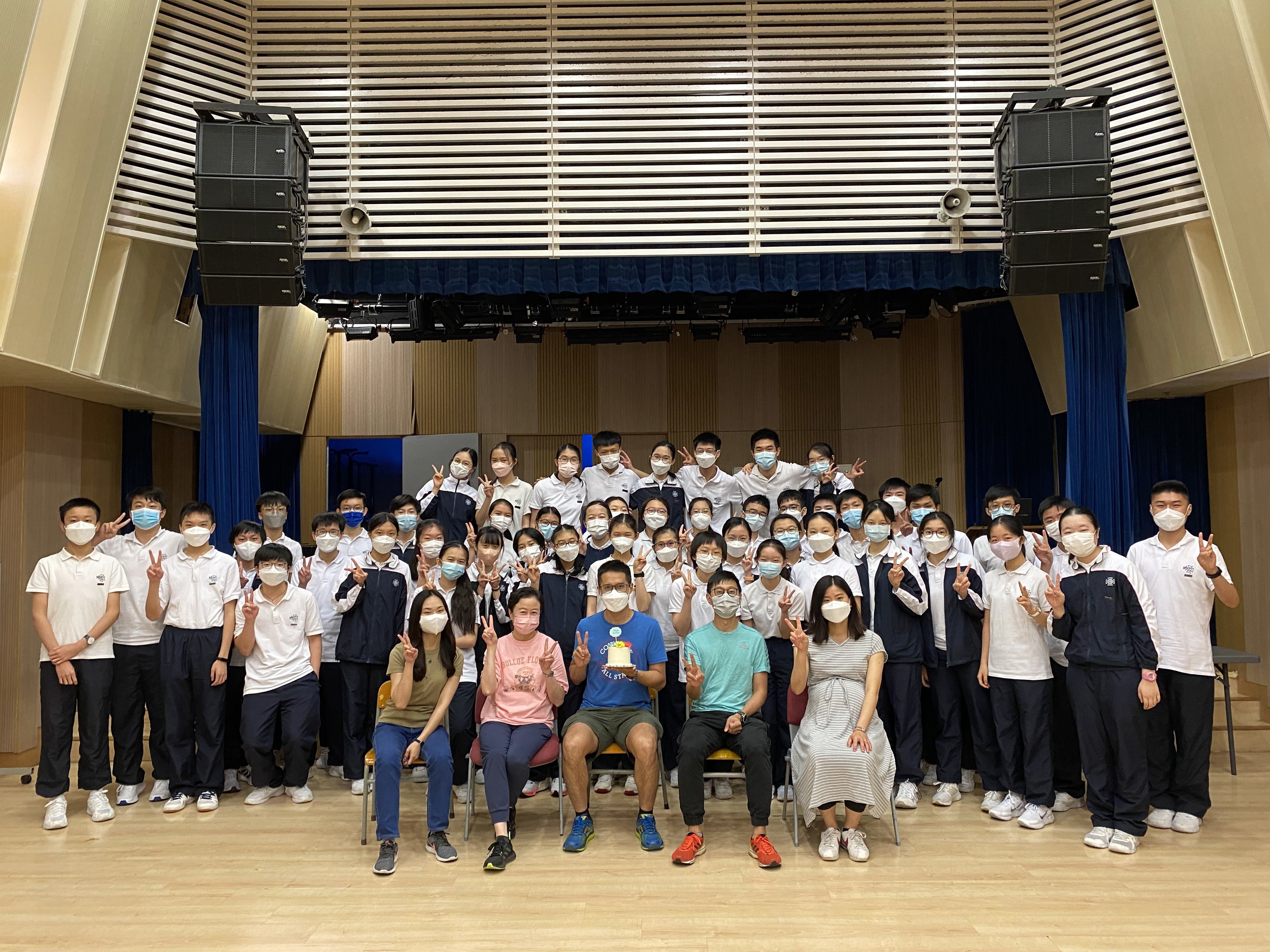
“We will lead with faith, hope, and love, and to serve with honour” — this is a promise that we, the Prefects, solemnly pledged to fulfil during our investiture ceremony.
Getting there is not easy, though. To nurture us into becoming successful school leaders, the Prefect Board offers us a variety of opportunities to hone our leadership skills and employ them to the greatest extent.
Last year, as Prefect Trainees, we acquired the different skills, values, and mindsets of being student leaders during training sessions. The Enrichment Programme Day presented an opportunity for Trainees to organise a self-initiated programme for fellow Form 4 schoolmates, through which we gained experience in arranging activities and communicating with external parties. Held at the end of the year, the Prefects’ Leadership Training was tailored to prepare us for the myriad of challenges we shall face as Prefects in SPCC.
Communication, problem-solving, and goal-setting are some of the skills we have developed through our experience in the Prefect Board. Possession of these skills is no doubt crucial to our success as leaders, but that alone is insufficient. The Prefect Board recognises that successful leadership derives from a passion for serving others, and only with this passion can we stand firm in the face of adversity and criticism.
With these in mind, we held our badges high and recited the pledge. After the training period had ended, the Prefects’ Investiture Ceremony marked the beginning of an arduous but fruitful journey in striving to serve the school and uphold its good reputation as principled leaders.
Service
The best way to lead is to serve. Service is what celebrates personal development through hands-on experience that actively brings sustainable support to others. By engaging with local and wider communities through voluntary activities organised by the Community Service Group or students’ self-initiated non-profit projects, we can promote social action that is based on a compassionate understanding of challenges faced by under-privileged individuals and communities in need of support in our society.
Community Service Group ~ Tiffany Mao
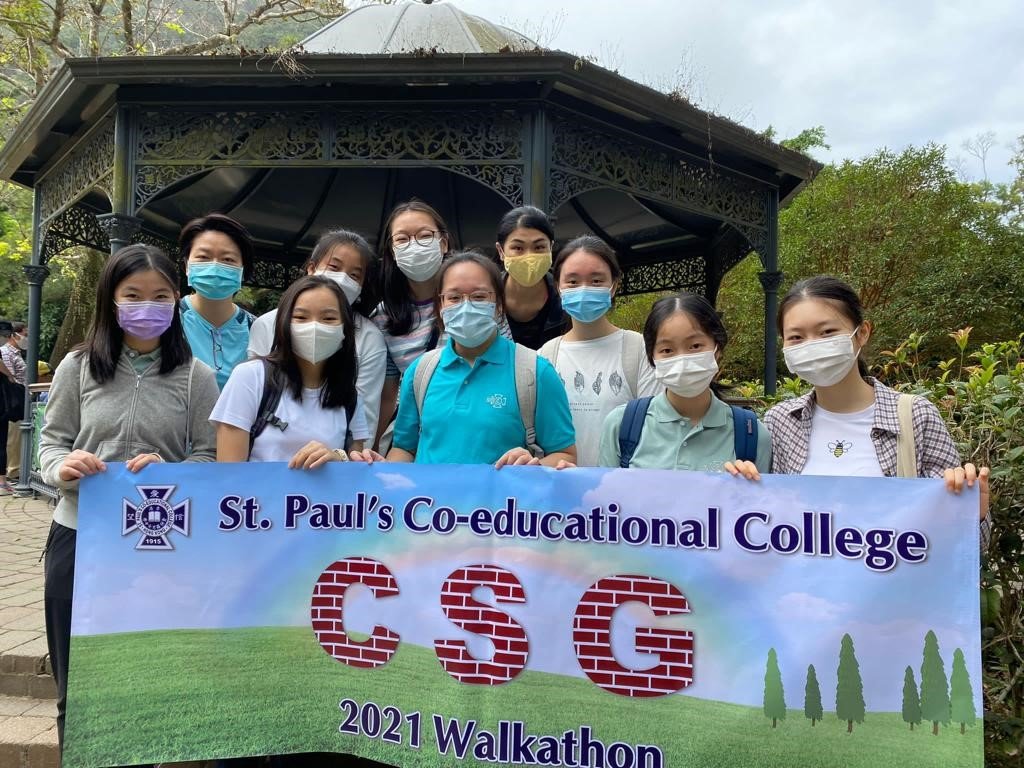
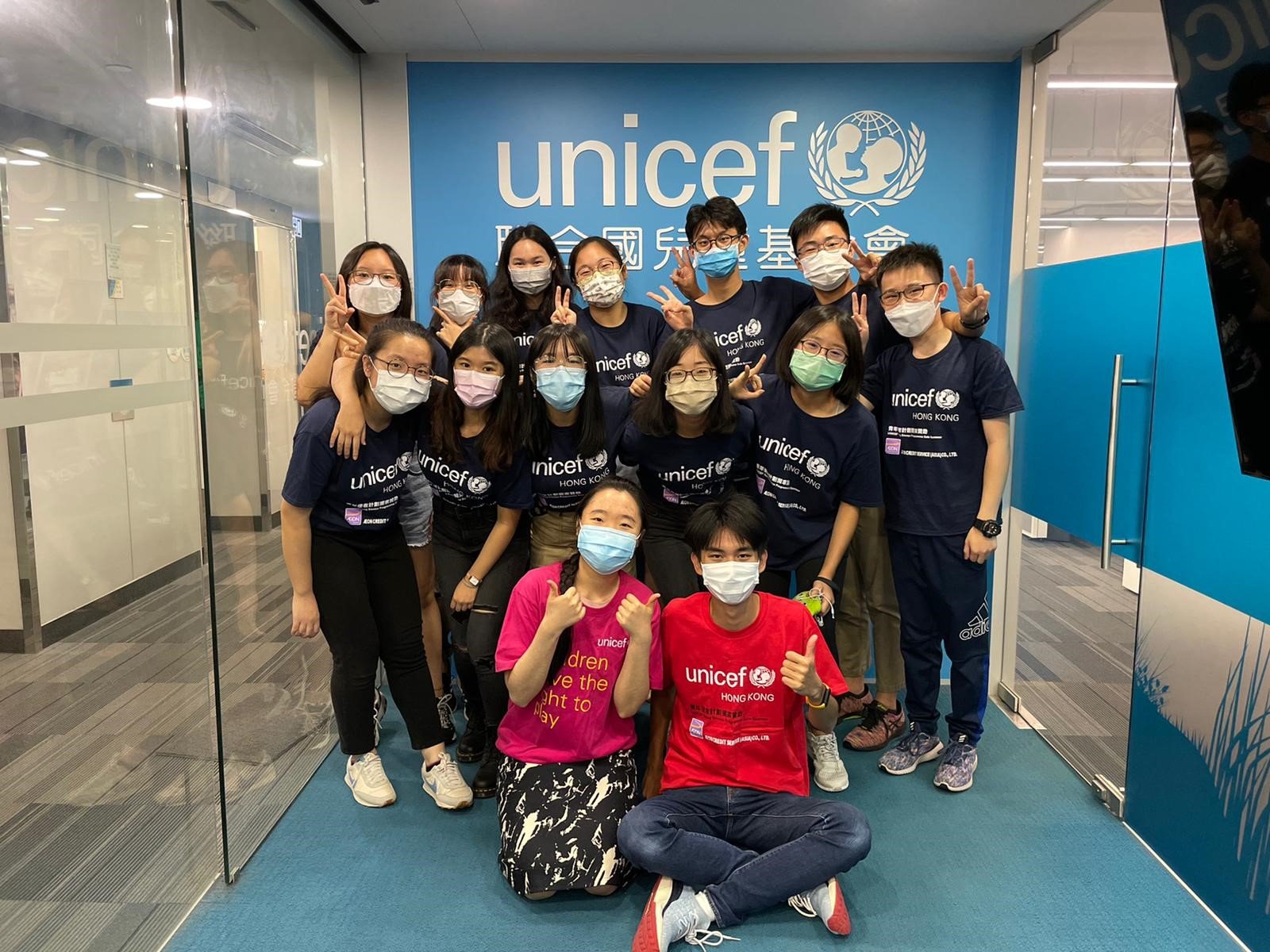
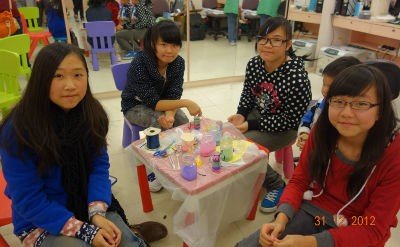
Every year, the Community Service Group provides a myriad of volunteering opportunities for St. Paulians to engage in serving the community. Last year, we offered services such as the EQ Ambassador Programme, UNICEF Young Envoys Programme, tutoring opportunities with different NGOs like SOCO and HAC, and many more. Our students collectively volunteered for over 2000 recorded hours according to the HKFYG “Easy Volunteer” Volunteer Service Award.
From our experience in voluntary tutoring at the Society for Community Organisation, we learnt to give back to the grassroots community and recognise our privilege as SPCC students. Through helping underprivileged children with their homework every week at the centre, we learnt to recognise the immediate needs of those who are not as privileged as we are, which helped us develop service projects that could target their specific needs. The experience not only made us realise the importance of commitment and passion in service projects, but also aided us in becoming compassionate and caring learners.
As Mahatma Gandhi once said, “The best way to find yourself is to lose yourself in the service of others.” Through continuing collaborations with different NGOs as well as carrying out new initiatives, the Community Service Group hopes to continue to foster a caring and encouraging environment for students to serve our community this year.

